“Heroes of War”
A Sky Vision production for A+E Networks UK
English version narrated by Peter Guiness
Producer: Nick Clarke Powell
Associate Producer: Marianna Bukowski
Executive Producers: Danny Tipping, Kathy Hale
Executive Producers for HISTORY: Rachel Job, Sarah Proctor
Seventy years after the fact, Poland’s considerable contribution to the Allied victory over Nazi Germany is being recognized in such recent and popular histories as Halik Kochanski’s The Eagle Unbowed: Poland and the Poles in the Second World War and Lynn Olson’s A Question of Honor: The Kosciuszko Squadron.
Now the UK History channel, together with Sky television, has stepped in with a five-part series that is airing around the world. “Heroes of War: Poland” was broadcast in Australia and New Zealand last year, and in a Polish version early this year. Ultimately, it will be seen in forty countries.
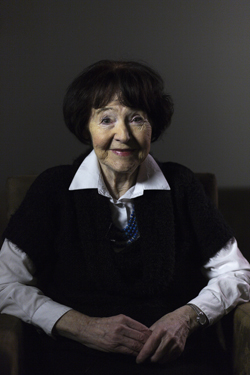
Zofia Pilecka, Witold Pilecki’s daughter
Photo via Sky Vision/HISTORY
Unsurprisingly, the series begins with the extraordinary story of Witold Pilecki, the “Auschwitz Volunteer” who stepped into a German roundup one day in order to see for himself the conditions at the new concentration camp outside Warsaw, known to Poles as Oświęcim. He not only survived the experience but after nearly three years escaped to report the facts to London and eventually to write the story in excruciating detail. (Though fairly well known in the West, The Auschwitz Volunteer: Beyond Bravery was not published in English until 2012. Pilecki’s ultimate fate—executed in 1948 by Poland’s Russian-controlled secret police—illustrates why the country’s Second World War experience was so muted in the West. Even after the Cold War began, it was not fashionable in the United States or Britain to play up the manner in which Joseph Stalin cynically seized control of Eastern Europe … a land grab now being played out in slow motion and on a smaller scale by his 21st century successor, Vladimir Putin.)
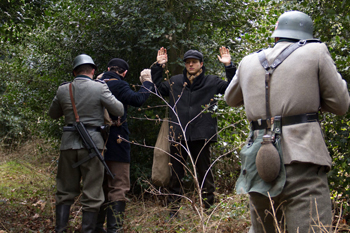
Photo via Sky Vision/HISTORY
By no accident, most of the episodes in the Sky-History series have a British connection, if only because most of the escaped Poles wound up in British uniform or operating under British guidance. Thus the second program tells the story of the Cichociemni, the Special Operations commandos who trained in Scotland and who were parachuted into Poland and other German-occupied countries to support local resistance groups under the control of the London-based Polish government in exile.
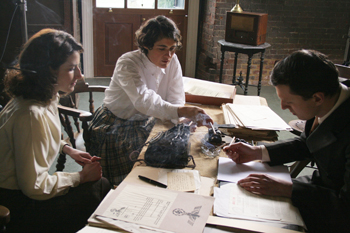
Photo via Sky Vision/HISTORY
The third episode—again, no surprise—takes up the story of how the British broke the “Enigma” encryption machines of the German armed forces using the knowledge gained by Poland in the 1930s. Working for the Cypher Bureau of the Polish General Staff, and using only encrypted messages, mathematician Marian Rejewski and two colleagues reverse-engineered an Enigma machine and built a “cryptologic bomb” to translate messages written by it. Weeks before the German and Russian invasions of September 1939, the Poles passed this information to Britain and France, and it became the unacknowledged basis of code-breaking operations at Bletchley Park. (I viewed this program in Polish, of which I am almost entirely ignorant, so I can only report that it contains repeated images of an Enigma machine with its wooden case, Qwerty keyboard, delightful little bulbs to illuminate the coded version, and the three cog wheels that could vary the encryption in nearly infinite variety.)
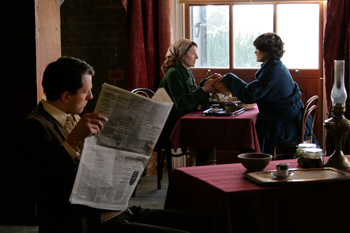
Żegota couriers meet in a still from “Heroes of War.”
Photo via Sky Vision/HISTORY
Less known today is Żegota, an underground organization with cells in Warsaw, Kraków, Vilnius, and Lwów that helped thousands of Jews survive the German occupation. Contrary to the well-established belief in Polish anti-Semitism, Poland was the only country in occupied Europe to have such an organization.
Finally, “Heroes of War: Poland” gives us the astonishing story of Krystyna Skarbek, whose father was a Polish aristocrat and her mother a Jewish banking heiress. She and her second husband were en route to Nairobi where he was to assume a diplomatic post when the war broke out. They immediately changed course and sailed from Cape Town to England and once there she immediately displayed her remarkable gift for persuasion by overcoming the obvious objections. She wasn’t British! She was Polish! She was Jewish! And worst of all, she was a woman!
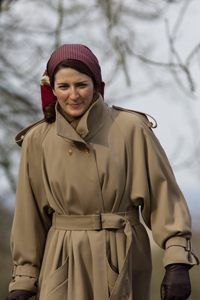
Krystyna Skarbek in a still from “Heroes of War.”
Photo via Sky Vision/HISTORY
Skarbek made her way home to Poland by way of still-neutral Hungary, crossing the mountainous frontier in December 1939 with the help of a Polish Olympic skier. Captured by the Gestapo, she gained her release and that of a comrade by biting her tongue until it bled, then feigning a tubercular cough. Later she worked in France for the Special Operations Executive, and in one spectacular episode arranged for the mutiny of conscripted Poles in German uniform manning a fortress on the Franco-Italian frontier. Postwar, Skarbek (by then she had formally adopted her nom de guerre of Christine Granville) survived on menial jobs in Britain, like so many of the Poles who had contributed to the Allied victory. She was stabbed to death by a rejected admirer in 1952.
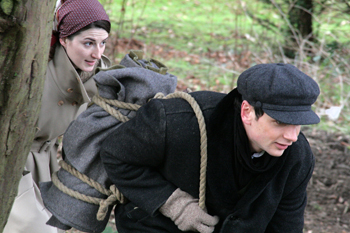
Krystyna Skarbek on the move in France, in a still from “Heroes of War.”
Photo via Sky Vision/HISTORY
The Skarbek episode is the only one of the five that I was able to view in full in the English version. It struck me as typical of History Channel productions, in which an attractive historian—Clare Mulley in this case, author of The Spy Who Loved—tells much of the story, with the narration fleshed out with wartime newsreels and 21st century recreations. (The actress who plays Skarbek in the reenactments does look remarkably like the real woman, though perhaps without her extraordinary “dose of magnetism,” as an elderly admirer remembers her.) The result is good entertainment and reasonably good history, though as is usually the case with such video productions, I turned to Skarbek’s biography on Wikipedia to fill out the details.
CR
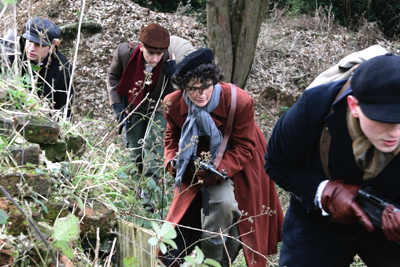

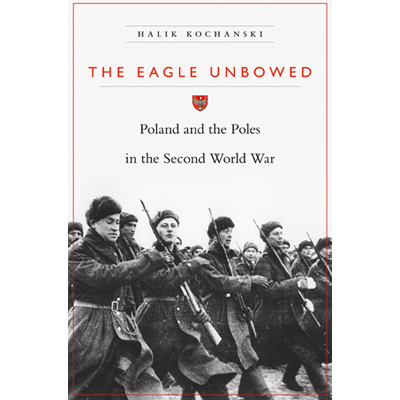
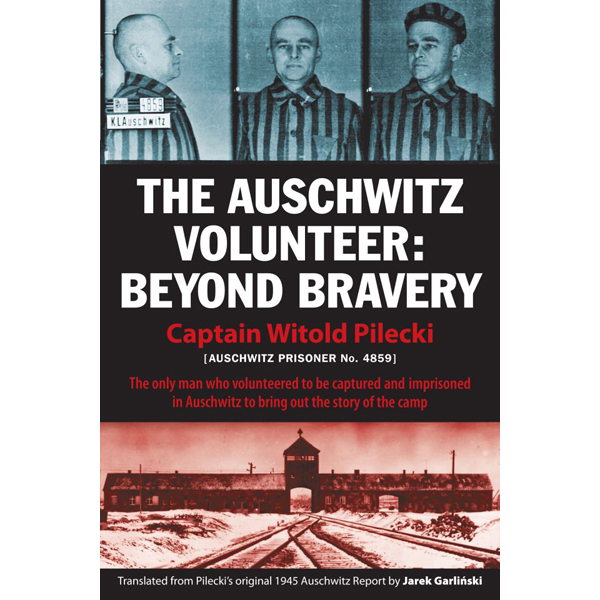
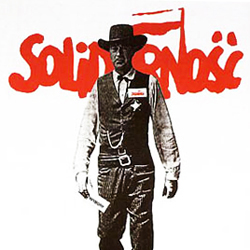
Thank you. And the Filmakers, too. Polish President should express his thankfulness to all of you, as well. Will he?
High time that the “code of silence” regarding Poland’s heroic AND significant contribution to the Allied victory in the ETO is being recognized with an English language special. To bad it took 71 years!